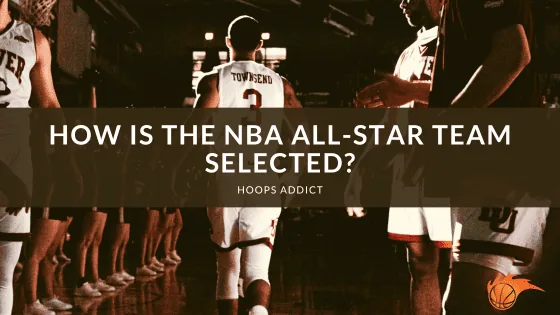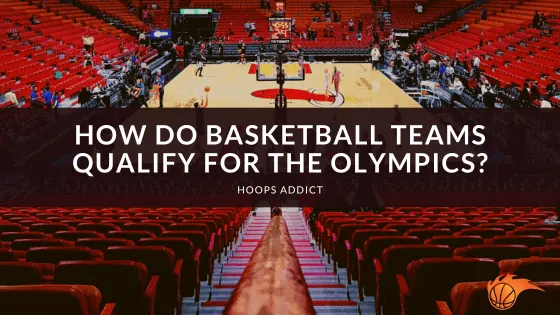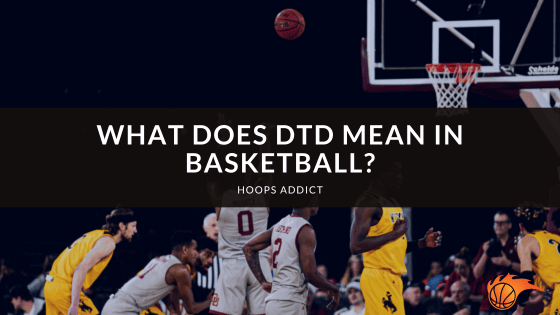Would you like to understand what is a player option in the NBA? This is a common term that represents a lot of situations occurring in NBA free agency. We want to give you all the knowledge necessary to fully understand what’s happening with NBA contracts that consist of team and player options. We will thoroughly explain unrestricted and restricted free agency and go through what factors influence the decisions made by players and teams during this time.
 What Does a Player Option Mean in the NBA?
What Does a Player Option Mean in the NBA?
A player option allows the player to decide whether to continue playing for a team for another year or become an unrestricted free agent. LeBron James’ contract has a player option for 2024. If a player signs a two-year contract with a player option for the third season, that signifies that if the player exercises the option, the contract extends through the third season.
Conversely, if the player chooses not to jump in on the option, the contract concludes after the second season, resulting in the player becoming an unrestricted free agent.
Once an option is exercised, it cannot be retracted, meaning that once the player decides to exercise the option, they cannot change their decision. Conditional player options are prohibited in the NBA. What this means is that the option cannot be dependent on variables such as the number of games played, team victories, or the player’s stats like scoring average and so on.
There can only be one option year except for rookie-scale contracts. In the case of rookie-scale contracts, first-round picks incorporate a team option before the third and fourth seasons. Option years must not feature a lower salary than the previous season.
 NBA Player Option vs. Team Option
NBA Player Option vs. Team Option
A team option grants a team the right to retain a player under contract for another year. For instance, if a player has a one-year contract with a team option for the second season, the contract extends through the second season if the team decides to re-sign the player. However, if the team does not exercise the option, the contract ends after the first season, and the player goes into free agency.
Contracts can only be drawn up with one option year with the exception of rookie-scale contracts. In the case of rookie-scale contracts for first-round picks, a team option is present before both the third and fourth seasons. These option seasons cannot be at a lower salary than any of the previous seasons.
In the 2023 NBA off-season, the Rockets picked up Kenyon Martin JR’s team option while the Lakers declined their team option on Malik Beasley’s contract.
In contrast, players with player options have all the power in the contract. The player can decide whether to stay with their current team for another year or become an unrestricted free agent.
For example, if a player signed a two-year contract with an option for the third season, the contract extends through the third season if the player picks up the option. If the player decides not to exercise the option, the contract ends after the second season, making the player an unrestricted free agent.
 Restricted vs. Unrestricted Free Agent in the NBA
Restricted vs. Unrestricted Free Agent in the NBA
A player tagged as a restricted free agent has the ability to sign an offer sheet with any team, but the player’s current team can match the same terms of the offer sheet if they wish to keep the player. This is similar to what Phoenix Suns did in 2022 when they decided to match the four-year, $133 million maximum offer sheet (Indiana Pacers) on Deandre Ayton.
Restricted free agency applies in the following scenarios:
- After the 4th year of a rookie scale contract for former first-rounders.
- For all veteran free agents with three or fewer seasons in the NBA. The exception to this rule is a first-round draft pick in their second or third season.
- A player who was just on a two-way contract and was on an NBA roster for at least 15 days in the previous season.
Restricted free agents have five options to consider:
1. Accept their team’s qualifying offer.
2. Accept their team’s maximum qualifying offer.
3. Negotiate a new contract with their team.
4. Sign an offer sheet with another team until March 1.
5. Engage in sign-and-trade negotiations if they haven’t signed an offer sheet with another team.
So, what is an unrestricted free agent NBA? Is there a major difference between restricted vs. unrestricted free agents in the NBA? An unrestricted free agent is free to sign with any team. This means that when a team extends an offer to a player, and the player accepts the offer, they become a new team member without any restrictions or obligations to their previous team.
 Why Do Some Players Decline NBA Player Options?
Why Do Some Players Decline NBA Player Options?
A few notable players who declined their player options are Draymond Green ($27.6 million) and Fred VanVleet ($22.8 million). Players contemplate the decision to decline a player option based on various factors. Although no universal explanation exists, several common reasons can influence a player’s choice. These include:
1. Financial Advantages
Players often decline their player option due to the desire to secure a more lucrative contract. When they enter free agency, players have the opportunity to negotiate with other teams and potentially receive higher salaries, longer-term contracts, or more favorable terms. A lot of players perform very well in the last season of their contract (also known as the contract year) to attract interest from other teams and raise the player’s market value.
2. Better Fit and Opportunity
Players may decline a player option if they believe they would be a better fit or get improved opportunities elsewhere. This could involve joining a team with championship aspirations, playing alongside players of their choice, or getting into a system that better aligns with their skills and style of play. A change of environment can enhance the player’s chances of personal and team success.
3. Ability to Gage Market Value
Declining a player option is a good way for some players to gauge their market value. When they explore free agency, players can assess the level of interest and demand for their services, enabling them to make a more informed decision about their future. They can receive offers from multiple teams, evaluate which organization values their contributions the most, and offers the best overall package in terms of salary, role, and potential for success.
4. Player’s Personal Preferences
Some non-financial factors such as geographical location, family considerations, or playing under a specific coach or alongside certain teammates play a part in influencing a player’s decision to decline a player option. These personal factors often carry significant weight in a player’s decision-making process.
Wrapping Things Up: What is a Player Option in the NBA?
Player options allow players to control their careers and explore their market value. The decision to decline a player option is complex, involving careful evaluation of financial gain, fit and opportunity, market value assessment, long-term security, and personal preferences.
We hope you enjoyed this post! If you did, be sure to check out our other basketball FAQ articles here.

 What Does a Player Option Mean in the NBA?
What Does a Player Option Mean in the NBA? NBA Player Option vs. Team Option
NBA Player Option vs. Team Option Restricted vs. Unrestricted Free Agent in the NBA
Restricted vs. Unrestricted Free Agent in the NBA Why Do Some Players Decline NBA Player Options?
Why Do Some Players Decline NBA Player Options?

